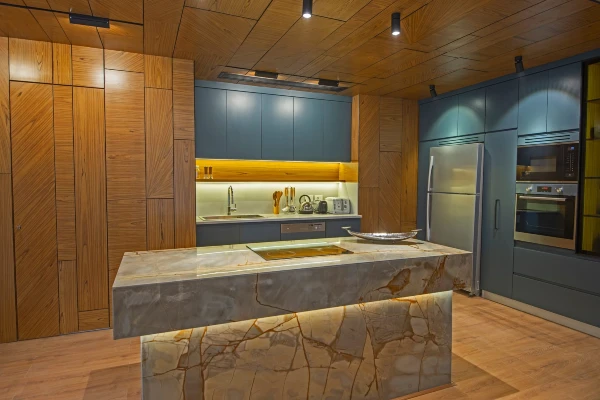Disclosure: This post may contain affiliate links, meaning we get a commission if you decide to make a purchase through our links, at no cost to you. Please read our disclosure for more info.
Stone countertops have remained a popular choice for most homeowners for decades. This is because they come in different forms, are durable, and can enhance the aesthetic appeal of a modern or traditional house. While some homeowners install granite countertops, other options like marble, quartz, travertine, and onyx cannot be ignored. With so many options, homeowners pick their desired stone depending on their preferences and budget.
Maintenance is the key to ensuring these stone countertops last longer. Stone countertop surfaces need regular care to maintain cleanliness and extend their life. Here are the top tips to consider when caring for a stone countertop.
Stone Sealing
Some natural stones used to make countertops are porous; they absorb soft foods, spilled liquids, oils, and other substances. These elements cause staining, which affects the appearance of the stone surface. So, you should know how to care for your stone countertop and prevent staining by sealing the stone immediately after installation.
However, contractors know the best sealant for each stone, ensuring the surface doesn’t absorb water or other elements. So, working with a competent contractor can help keep the stone countertop in good shape and prevent premature replacement. The stone sealing process needs to be redone after a while for improved protection and durability.
Surface Cleaning
Other than sealing stone countertops, homeowners need to prioritize routine cleaning to keep the surface neat. Experts recommend using a pH-neutral cleaner formulated for natural stone surfaces. Those who don’t have such a cleaner can mix vinegar and water and use it to clean the surface.
Homeowners should avoid ordinary cleaners, which might damage or stain the countertop. They should also avoid acidic or abrasive products. Some dish soaps today can create buildup or even cause stone discoloration, so homeowners should avoid using soap when cleaning a stone countertop. Glass cleaners are not recommended either, as they can dull the polish.
Surface Protection
The countertops are designed to provide adequate work space in the kitchen. While some stoves may be strong enough to withstand heat, others cannot. Therefore, using a trivet or any other type of barrier is always better when setting hot pots and pans on the counter. Too much heat can damage the natural stone even if a sealant has been applied, leading to cracks and other damages that trap dirt and liquid content.
Homeowners should not slam heavy objects on the countertops to avoid damage. It is also important to minimize direct sunlight exposure. Ultraviolet rays can damage some stone countertops, causing discoloration. This means that the stone countertop should be away from sunlight. If not, the nearby windows should be tinted to block the UV rays.
Spill Removal
No matter how cautious one is in the kitchen, spillages can occur when least expected. Those who have installed stone countertops should wipe away the spills fast to avoid stone discoloration. Liquids like wine and grape juice are acidic, so they can erode the sealant and stone or leave ugly stains that cannot be removed easily.
These simple stone countertop maintenance tips can keep the surface in good condition for years. Besides cleaning, the stone surface needs periodic treatment, polishing, and sealing to prevent damage and maintain the original color. However, stone restoration technicians can repair and restore the countertop if the stone is dull, etched, scratched, or damaged.

